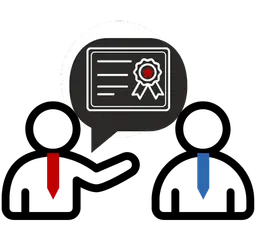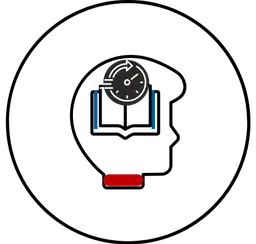
Train with PMI Authorized Trainer
Build skills with courses, certificates, and degrees online from
world-class universities and companies.
Earn your PfMP certification with Edhut
Build skills with courses, certificates, and degrees online from
world-class universities and companies.
Why PfMP With Edhut

Application Writing Support
Assistance to ensure successful approval of PfMP application

Practice Test and Mock Exam
Comprehensive simulation tests to ace your PfMP exam

Study Materials align to latest standard
Study materials aligned with the latest PfMP standards

PMI Authorized Training Partner
Training from a PMI authorized partner

Advanced Learning Management System (LMS)
Access to an advanced LMS for efficient learning

Continuous Learning Support
Ongoing support to ensure continuous learning

PMI pre-approved PDUs
Earn PMI pre-approved PDUs with ease

Value-Driven Investment
A program designed to provide maximum value for investment
Course Schedule
Quick Enquiry Form
This program is designed to empower participants with complete
knowledge of Program Management practices from PMI USA and helping them to clear PgMP
certification on their very first attempt with Above Target score.
Edhut Solutions presenting extensive training on Program Management Professional (PgMP)
certification from PMI. This training course will prepare participant for PgMP certification
examination along with empowering them with implementation knowledge of program management
practices.
Participant would be trained with tools and templates of program management. Every concept
is explained with a case study from real programs and participant would be experiencing
hands-on implementation of program management practices. Furthermore, this is not just a
training course on PgMP concept but it’s an engagement program until you get certified.
Who should attend?
Project managers, Senior Managers, Functional Managers, Program
managers, PMO / PMO consultants or anyone who typically support or manage project/program
containing complex activities spanning functions, organizations, clients and geographic
regions.
However, this course can be taken by anyone who wants to learn the fundamentals of program
management.
Introduction to Project, Program, and Portfolio
The Relationship between Program Management, Operation Management and Organizational Strategy
Role of Program Manager
Program Manager Skills and Competencies
Introduction to Portfolio and Program Governance board and Office
Definition of Program management performance domain
Program Life-Cycle Phases and Activities
Program Management Performance Domain interaction
Organizational Strategy and Program Alignment
Program Mandate and Business Case
Program Plan & Program Roadmap
Introduction to Program lifecycle
Program Definition phase, it’s sub-phases and activities
Program Benefits Delivery Phase and It’s Activities
Program Closure Phase, its sub-phases and its activities
Introduction to Benefits Lifecycle and alignment of Benefit lifecycle to Program Lifecycle
Introduction and Creation of Benefit Dependency Map (BDM)
Scoring Benefits, Finalizing Benefits Path and Preparing Benefit Register
Preparation of BRP (Benefits Realization Plan), Benefits Trajectory and Benefit Distribution Map
Mapping Benefits to Program Management Plan
Introduction to Benefits Transition / Sustainment process and its activities definition
Introduction to Program Governance domain
Prioritized governance goals
Governance Structure and Composition
Roles and Responsibilities
Issue Escalation, Audit and Quality Management
Introduction to Program Stakeholder Management
Program Stakeholder Identification
Stakeholder Engagement Planning and linkage to Communication Management Plan
Stakeholder Engagement
Question and Answer Sessions – Discussion with Edhut Solutions
Discussion on PgMP Application Filing
Discussion on Exam Question Patterns and Strategy
Our Services
Frequently Asked Questions (FAQs)
The PMI-PfMP (Portfolio Management Professional) certification is designed for professionals who manage and oversee portfolios of projects and programs, aligning them with organizational strategy.
Applicants need a minimum of 8 years of business experience, along with 4 years of portfolio management experience. The portfolio management experience can be part of the overall 8 years of business experience. Specific requirements vary based on educational background. For more details on eligibility, please refer to the PMI PfMP Handbook for the latest requirements.
While PMP focuses on project management and PgMP on program management, the PfMP certification is intended for managing a portfolio of projects and programs, ensuring they align with strategic objectives.
The process involves submitting detailed documentation of your portfolio management experience, which PMI reviews to determine eligibility.
Include specific details about your role, the scope of the portfolio, strategic objectives, and the outcomes you achieved.
The time varies based on panel review, exam scheduling, and other factors, but typically takes 2-6 months.
PMI membership is optional but recommended, as members receive discounted fees and access to valuable resources.
Yes, PfMP also includes a panel review where a team of certified professionals evaluates your portfolio management experience based on your application.
No, all candidates must pass the panel review before being allowed to schedule the PfMP exam.
The panel review can take approximately 2-4 weeks, though this may vary based on the completeness of your application and panel availability.
There is no specific limit to the number of updates or resubmissions. However, addressing the panel’s feedback carefully each time can increase your chances of passing.
The PfMP exam fee is $800 for PMI members and $1,000 for non-members. Check PMI’s website for the latest information and potential discounts.
Yes, PMI offers the option to pay in local currency for candidates in India and Brazil, simplifying the payment process.
The PfMP exam is available at authorized Pearson VUE test centers only; online proctored exams are not currently available for this certification.
The exam consists of 170 multiple-choice questions, which assess knowledge across five domains related to portfolio management.
You have 4 hours to complete the PfMP exam, allowing ample time to answer all questions thoroughly.
The exam covers five domains: Strategic Alignment, Governance, Portfolio Performance, Portfolio Risk Management, and Communications Management.
Preparation can include studying PMI’s standards for portfolio management, practicing with mock exams, and taking preparatory courses if needed.
If you do not pass, you can retake the exam up to two more times within one year of your application approval. Additional fees apply for each retake.
PfMP certification holders need to earn 60 PDUs (Professional Development Units) every three years to maintain their certification.
PDUs can be earned through professional development activities, such as training sessions, educational events, and contributions to the portfolio management community.
PfMP certification demonstrates your expertise in portfolio management, helping you stand out as a strategic leader and open doors to advanced career opportunities.
Portfolio management focuses on aligning projects and programs with organizational strategy, while program management is about managing related projects to achieve specific program objectives.
PMI regularly updates the exam to reflect current best practices in portfolio management and ensure relevance to industry needs.
PMI provides a range of resources, including the Standard for Portfolio Management, practice guides, and online resources for candidates.









